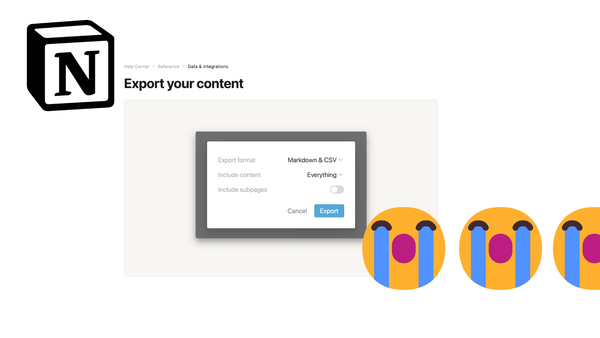Advantages of Using Voice Dictation

I've long been on a quest to increase my typing speed; figuring that typing is one of the things that I do for most of the day, and getting faster at it would be of significant advantages for me (see my notes on trying to form habits). However, as I am already typing for work all day, when it comes to writing for my own enjoyment, I often feel not very motivated to do so after having been glued to the keyboard all day.
Thus, I was thinking about whether there could be other ways for me to record my thoughts that won't involve typing on the keyboard. Specifically to use voice dictation. I think there are a number of advantages to voice dictation over writing with the keyboard and wanted to collect some of these in this article.
Health
The first advantage, I think, is related to health. As good as one can become at typing in the keyboard, it's still a highly repetitive, unnatural movement for us. It is generally not healthy for us to engage in excessive typing over long periods of times. Days, weeks, years and decades of repetitive typing can result in significant damage to our fingers, hands and arms. We do not need to use our hands when dictating or need to put the rest of our body into any particular position. We can even do so while walking, which is one of the healthiest things we can do.
Speed
Another advantage is that dictation can often be much faster than typing. Even after many years of practice, I still barely manage to type more than 40 to 60 words per minute when typing. But when speaking, it's easy for any of us to express many more words per minute - about 150. Now one needs to take into account here that usual speech to text recognition software is not very accurate, with accuracy sometimes going below 30%. But contemporary services nowadays arrive at accuracy of up to 80 or 90%. So even with some editing and correction involved, one may still achieve better results compared to typing.
Thinking
A further advantage of dictation is that it allows us to access a different way of thinking. I think different when I type, when I speak or when I am just daydreaming. And while we often think that writing itself consumes the most time when composing a piece of written text, I think most important of all is the maturity of thinking we have attained before we even start to write the first letter.
To give an example, sometimes one may take only 20 or 30 minutes to write a short piece, and this short piece may have significant value. But more often than not, we are only able to accomplish this result because we have become familiar with a topic over a very long time; gaining skills and knowledge - often over a span of decades. So with that in mind, if creating new writing by dictating allows us a different perspective on our subject matter and allows us to think about it in different ways, then it can help us increase our maturity of thinking about a particular topic and that ultimately yield more valuable results.
Getting a First Draft
Many good writers know that one of the biggest challenges of writing is not the writing itself, but the editing. Dictation offers a very efficient way to create a first draft for a piece of writing. It won't be perfect, it won't be publishable but it is something to get us started on the real work; since even if drafting is generally the more difficult and time-intensive part of working, it is often no small feat to arrive at a first draft of some kind.
So if we create a first draft through dictation, which won't have the full clarity of thinking and where transcription can be assumed to be quite inaccurate, that is maybe not such a big issue, since we'll have to spend most of our time editing our work in any case.
Avoid Distractions
Another benefit to dictation in my mind is that it can get us away from computer screens. Our computing devices are like a portal to a whole universe of information and activities and it is often very difficult to keep ourselves focused on the task at hand with all this temptation at our fingertips. I bought for myself a Chromebook where I run a terminal window. In that terminal I write with most distractions out of the way. The underpowered Chromebook makes the temptation of the Web and other things that one can usually do with a computer as unappealing as possible. However, even using that, I often find myself going across a different tab and searching something up on the Web.
I think it is not easy to stay focused uninterrupted stretches of time - even for only 15, 20 or 30 minutes - when we write by using a keyboard, which inevitably happens on a computer-like device. Dictation, in contrast, requires nothing else but something that can record our voice. This I believe makes it easier for us to stay focused and to stay free from distraction.
Get Ready for Virtual Reality
Virtual reality is a bit like autonomous driving; promised for decades but slow to materialize in a form that has true mass market appeal. However I do think that recent advances, especially new devices like the Oculus Quest 2, bring us closer to the dream of actually usable virtual reality. Keyboards, I am very sure, will not work very well in VR, and thus becoming familiar with using our voice to compose messages and text is bound to become a more valuable skill as VR becomes more prevalent.
Better Memory
Another advantage is that the dictation encourages us to use our memory. When we are writing on the computer, we can easily refer back to our notes, or we can scroll back and forth within our piece of writing. This can act as a powerful crutch for our memory, whereas, when we dictate, we really have nothing to fall back on but our memory. And memory is a bit like a muscle in our body; in that it gets stronger as we train it more.
Gain Mastery
Lastly, I think dictation is a skill that that we can gain mastery in. I've mentioned in the beginning of this article that I've spent a long time trying to get better at typing at which I succeeded to some degree but not to the degree I would like to. Typing faster yields significant advantages in allowing us to do any computer work quicker. But I think getting good dictation and knowing how to compose text just through our voice can also be extremely valuable: to increase our verbal communication skills, especially for presentation, speeches and laying out complex ideas in meetings, but also, as mentioned before, as a as a portal to bring us into new spheres of thinking.
While using voice dictation has many potential advantages as discussed in the above, it of course also has disadvantages. For composing a text with speed and razor-sharp precision there is no better option than to type on a keyboard, and I believe this will remain an important skill for us for a long time. However, these days dictation can be a valuable complement to typing in some circumstances. As machine learning algorithms advance and we unlock new ways of human-computer interactions, I assume using our voice will become more and more important, since it is a faster and more natural way for us to communicate than using 100 odd small keys on a keyboard. I am excited to do some of my own experiments with this to see which of the proposed advantages here can actually manifest in practice using current tools and technologies.
Appendix
I created this article itself using voice dictation. For this, I recorded a voice memo on my iPhone, uploaded that to Google Drive, downloaded it from there to upload to an AWS S3 bucket. I then used the uploaded file on AWS S3 as an input into a transcription job using Amazon Transcribe. I must say that process was not the most straightforward and requires a fair bit of technical expertise. However, Amazon Transcribe did a reasonable job of transcription.
Here some statistics:
- Length of voice recording: 12 m 7 s
- Total words: 1176
- Total time spend editing: 73 min
Picture credit: Cicero Denounces Catiline





